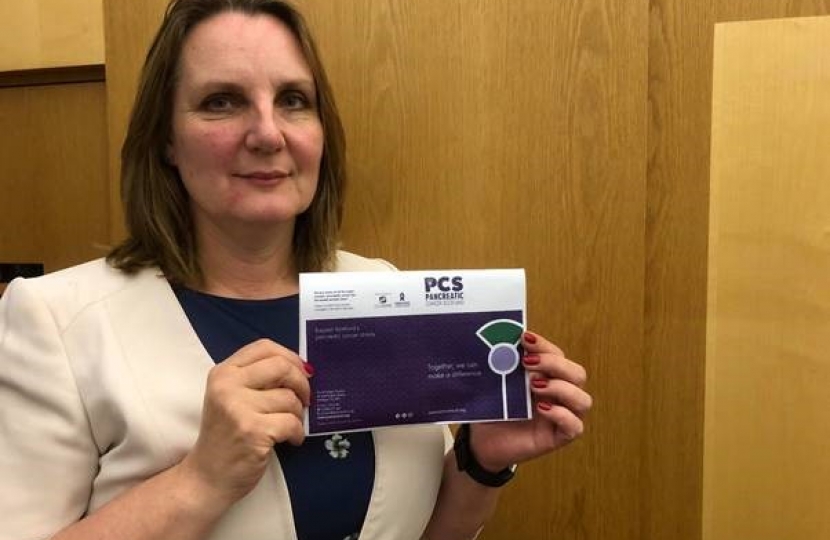
This week, Michelle Ballantyne MSP for South Scotland is taking part in raising awareness for pancreatic cancer ahead of the Scottish Parliament’s debate on Pancreatic Cancer.
Last Thursday, the world celebrated World Pancreatic Cancer Day.
Of all the major cancers, pancreatic cancer has the lowest survival rates. In nearly every country, it is the only major cancer where the percentage of people who survive for over five years is in single digits. Right now, this figure is estimated to be 2.9%.
In NHS Lothian, incidence of pancreatic cancer has risen over the last decade. In 2016, there were 119 people diagnosed compared to in 2005 when there were just 73.
Common symptoms of pancreatic cancer can include abdominal or back pain, weight loss, yellowing of the skin from jaundice, loss of appetite, nausea, changed bowel habits, and new onset diabetes not associated with being overweight. These symptoms, can, however, also be attributed to other less serious causes and common conditions, but if people have concerns and persistently experience one or more of the symptoms, which are not normal for them, they should make an appointment with their GP.
Michelle Ballantyne MSP praised the efforts of organisations like Pancreatic Cancer Scotland to raise awareness for the disease and has joined in to highlight the importance of raising awareness for the symptoms and promote early diagnosis.
Michelle Ballantyne MSP commented:
“As a practising nurse of two decades I have seen first-hand the devastating impact that pancreatic cancer can have on the lives of, not just those who are diagnosed with it, but their families and loved ones also.
“It’s important that we recognise the symptoms of pancreatic cancer. A lot of the symptoms can be associated with less severe illnesses and often we can ignore them. However, we shouldn’t.
“I would encourage anyone who is undergoing the symptoms of pancreatic cancer to go get themselves checked.
“I would like to thank Pancreatic Cancer Scotland for the work they’ve been doing to promote awareness for this important issue. By increasing awareness we will hopefully be able to reduce the number of people who are seriously effected by this.



